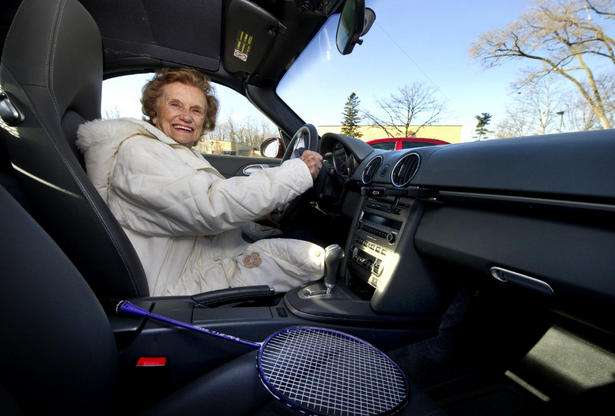
Driving and dementia–when should we ask for the keys?
It is strangely comforting to think that all of the stress and sleepless nights we gave our parents when we began driving will be repaid in kind. Remember how the keys represented a freedom well worth the dangers? And remember how upset we were if that was taken away? Now imagine asking your parents or grandparents to stop driving. Life really does come full circle.
As our parents, relatives, and friends grow old, some will be diagnosed with dementia. The diagnosis does not automatically mean that they should stop driving. People with dementia can continue driving and will want to keep their licences as long as possible to live independent, engaging lives. But as individuals and a society, we need to be prepared for when they need to stop driving for the safety of themselves and others. According to a study by Queen’s University, the number of drivers with dementia in Ontario is expected to increase from 45,000 today to 100,000 by 2028.
The Ontario government has also started devoting increase attention to the issue. It announced last February that it would be looking to implement a province-wide driving and dementia strategy. The push for a new plan followed a series of articles in the Toronto Star on the issue, after which the Ministry of Transportation promised to take action. The Alzheimer Society immediately contacted the government asking to take part in any discussions. Two of our representatives, Cathy Conway, Director of Quality Management and Education, and Jacquie Micallef, Public Policy and Government Relations, met with MTO officials on September 25 to discuss the matter. Here’s what Jacquie had to say about the meeting:
We had two primary goals. We wanted to ensure the new plan was not rushed through and that it protected the right of seniors to mobility. We also wanted partner with the government to make use of both our well-established networks with Alzheimer’s patients and their more substantial resources.
In the end, the meetings were fruitful. We found many ways to partner with the MTO, such as through our First Link® program, which could help seniors get used to the idea of giving up the keys early after diagnosis. We could also help promote tools for doctors and occupational therapists to identify those who may be losing their driving skills.
It remains to be seen what the government will do. But ultimately, any legislation for people with dementia who continue to drive will require a balance between the interests of public safety and avoiding discrimination against seniors. Unnecessary suspensions of driving privileges of seniors with dementia, many still capable drivers despite their diagnosis, would lead to a loss of independence and often, depression.
Please share your ideas in the comment section below. What would you do when you believe someone needs to stop driving? Can you think of any strategies to make the transition less painful?
Marketing and Communications Intern
